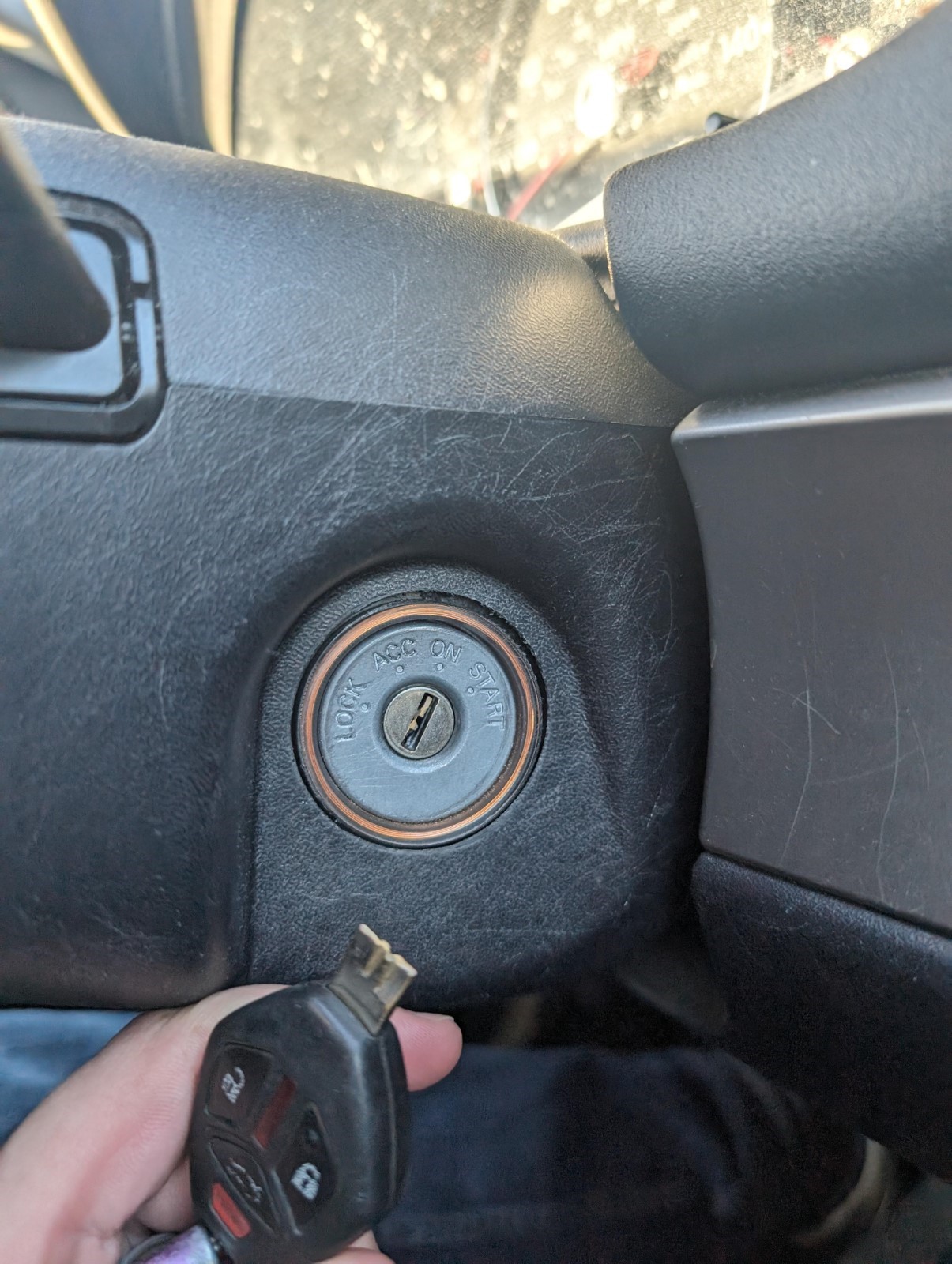Understanding Car Ignition Problems Stuck Ignitions and Broken Keys
Introduction
Car ignitions are an essential part of any vehicle, responsible for starting the engine and enabling the car to function. However, ignitions can sometimes malfunction, leading to frustrating situations such as a stuck ignition or a broken key. These problems can leave you stranded and feeling helpless. By understanding the common causes of these issues and knowing how to address them, you can manage these situations more effectively. In this article, we will explore why car ignitions can get stuck or why keys might break, discuss possible solutions, and highlight how professional locksmiths can assist in these scenarios.
Why Do Ignitions Get Stuck? Common Causes and Solutions
A stuck ignition is a common problem that can prevent your car from starting. Several factors can cause this issue, but understanding these reasons can help you troubleshoot effectively.
One of the most frequent causes of a stuck ignition is the activation of the steering wheel lock mechanism. This safety feature is designed to prevent the car from moving when parked, but it can sometimes interfere with the ignition. If the steering wheel is turned sharply to one side while the car is off, it can activate the lock, making it difficult to turn the key. To resolve this, gently try turning the steering wheel left and right while simultaneously turning the key in the ignition. This action can often release the lock and allow the ignition to turn.
Another common reason for a stuck ignition is a worn-out key or ignition cylinder. Over time, keys can become worn due to frequent use, which may cause them to no longer align correctly with the ignition cylinder's internal pins. Similarly, the ignition cylinder itself can wear out, resulting in a misalignment or jamming of the key. If you notice your key is becoming difficult to insert or turn, it may be time to consider replacing it before it causes more significant problems.
Dirt and debris can also accumulate inside the ignition cylinder, obstructing the key from turning properly. Using a can of compressed air to clean out any foreign particles can help keep the ignition functioning smoothly. Regular maintenance of your key and ignition area can prevent this build-up and reduce the likelihood of a stuck ignition.
In some cases, the issue may lie with the ignition switch itself. Electrical problems or internal component failures can prevent the ignition from turning. If you suspect a faulty ignition switch, it may need to be inspected and replaced by a professional to avoid further complications. Similarly, a weak or dead battery can sometimes mimic a stuck ignition problem. Ensuring your car's battery is charged and in good condition can help prevent issues with the ignition.
Dealing with a Stuck Ignition: Steps to Take
If you find yourself facing a stuck ignition, there are a few steps you can try before calling a professional. First, check if the steering wheel lock is engaged. Gently move the steering wheel while turning the key to see if this releases the lock. If the key itself appears worn or damaged, try using a spare key. Sometimes, a worn-out key is the culprit behind a stuck ignition.
Cleaning the ignition cylinder is another practical step. If you suspect dirt or debris, use compressed air to clear out any particles. Be careful not to insert objects into the ignition, as this can cause further damage. Lastly, check your car's battery. A weak or dead battery can prevent the ignition from recognizing the key, so make sure your battery is charged and in good condition.
If these steps do not resolve the issue, it’s advisable to contact a professional locksmith. A mobile locksmith can come to your location and diagnose the problem, providing a solution without causing further damage to your ignition system.
Understanding Broken Keys in the Ignition: Causes and Remedies
Another issue that car owners might face is a broken key inside the ignition. This can happen for a variety of reasons, and knowing what to do in such a situation can save you from a lot of trouble.
Keys can become brittle and weak over time due to regular use, exposure to harsh weather conditions, and general wear and tear. This makes them more prone to breaking, especially if excessive force is applied when turning the ignition. If you feel resistance when turning the key, avoid using extra force, as this could cause the key to snap off inside the ignition.
Sometimes, low-quality key copies can increase the risk of breaking a key in the ignition. Not all key copies are made with the same precision as the original, and poorly made duplicates may not fit the ignition properly, leading to breakage. Cold weather conditions can also make keys more brittle. Metal contracts in low temperatures, making it more challenging to turn the key in the ignition. When the ignition cylinder is tight, and the key is brittle, this combination can result in a broken key.

What to Do If Your Key Breaks in the Ignition
If you find yourself in the unfortunate situation of having a key break off inside the ignition, it’s important to remain calm and avoid making the problem worse. Do not attempt to start the car, as this can push the broken key piece further into the ignition cylinder, complicating removal efforts. If the engine is running, turn it off immediately to prevent damage to the ignition system.
Next, assess the situation to see if any part of the broken key is protruding from the ignition. If a portion of the key is visible, you can try to gently extract it using needle-nose pliers. Be careful not to push the key further into the cylinder. If no part of the key is visible, or if you're unable to remove it, it's best to avoid using makeshift tools or inserting objects into the ignition, as this could cause additional damage.
In these cases, calling a professional locksmith is often the best solution. Locksmiths have specialized tools designed to safely remove broken keys from ignitions without causing harm to the ignition cylinder. They can efficiently resolve the issue, ensuring that your car's ignition is not further damaged.
The Role of Locksmiths in Addressing Ignition Problems
When facing ignition problems, whether it's a stuck ignition (Add Internal Link here) ‘To ignition-key-replacement" or a broken key, professional locksmiths are an invaluable resource. Locksmiths possess the expertise to handle a wide range of ignition issues, from simple fixes to complex repairs. They can quickly diagnose the problem and implement an effective solution, minimizing your downtime and getting you back on the road.
Locksmiths are equipped with specialized tools that allow them to perform precise work without damaging your vehicle’s ignition system. Their training enables them to extract broken keys, repair ignition cylinders, and replace faulty components efficiently. Moreover, many locksmiths offer mobile services, meaning they can come to your location, whether you’re at home, at work, or stranded on the road. This convenience is especially beneficial in emergency situations, such as car lockouts or ignition failures.
Another advantage of using professional locksmith services is their availability. Many locksmiths provide 24/7 emergency services, ensuring that help is always available when you need it most. Whether you’re dealing with a stuck ignition in the middle of the night or a broken key during a busy day, locksmiths are ready to assist you.
Preventing Ignition Problems: Practical Tips for Car Owners
While not all ignition problems can be prevented, taking certain precautions can reduce the likelihood of issues such as stuck ignitions and broken keys. Regular key maintenance is crucial; inspect your keys periodically for signs of wear and tear. If you notice that your key is becoming worn, consider getting a replacement before it breaks in the ignition. Keep spare keys in good condition and avoid using damaged or poorly made copies.
When using your key, avoid applying excessive force. If you encounter resistance while turning the key in the ignition, stop and investigate the cause rather than forcing the key. Forcing the key can lead to breakage or damage to the ignition cylinder. Keeping the ignition cylinder clean is also essential. Regularly use compressed air to blow out dirt and debris that could cause the key to jam. Refrain from inserting objects into the ignition cylinder that could cause damage.
In colder climates, be mindful of how you use your car key. Cold weather can make keys more brittle, so warm the key with your hands or use a key de-icer before attempting to start your car. Being cautious in these situations can help prevent broken keys and other ignition-related problems.
Conclusion
Car ignition problems, such as stuck ignitions or broken keys, can be frustrating and inconvenient. By understanding the common causes of these issues and knowing how to address them, car owners can take proactive steps to manage and prevent such situations. Whether it's a steering wheel lock, a worn-out key, or a broken ignition cylinder, recognizing the signs early can save time and avoid costly repairs.
When ignition problems arise, professional locksmiths provide the expertise, tools, and convenience needed to resolve the issue efficiently. With their help, you can ensure your vehicle's ignition system is functioning correctly and securely. By following practical tips for key maintenance and avoiding excessive force, you can reduce the risk of ignition problems and keep your car in good working condition. If you’re facing ignition problems or need assistance with key replacement, broken key extraction, or emergency roadside services, our team of professional locksmiths is here to help. We offer 24/7 service to ensure you’re never left stranded. Contact us today to learn more about how we can assist with all your locksmithing needs!

